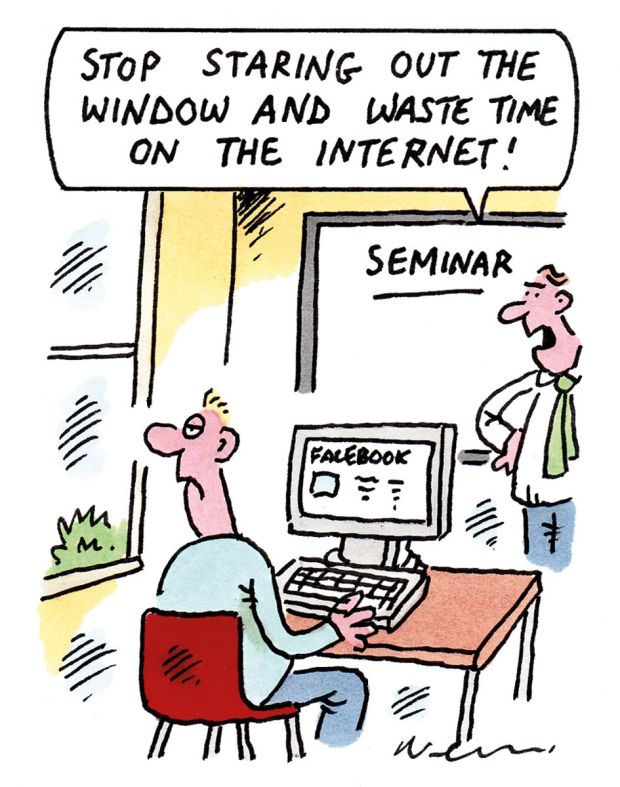
- As Times Higher Education went to press, a marking boycott due to start on 6 November by members of the Universities Superannuation Scheme still looked likely to go ahead. It had been hoped that talks between employers and the University and College Union might be brought forward to try to avert the action, sparked by anger over plans to alter the benefits paid by the USS. But a growing list of universities threatening to dock the pay of staff participating in the boycott was not helping to thaw relations. The University of York last week became what was believed to be the first institution to tell staff that it will withhold pay from those taking part. Others looked set to follow suit. Imperial College London warned staff in an email on 31 October that it will dock 25 per cent of pay, and Newcastle University reminded academics of its right to withhold salary because of “partial performance”.
- An Ivy League university is offering a course on “wasting time on the internet”, Metro reported on 3 November. Many students are no doubt experts on this area, but those in the department of English at the University of Pennsylvania will be able to attend a weekly three-hour seminar to hone their ability to drift for hours through cyberspace. Seated at a computer and barred from talking during the seminar, students will be restricted to using social media and chat rooms, according to the course description. Their online conversations in spaces such as Facebook and Twitter will then be translated into printed work. “This class will focus on the alchemical recuperation of aimless surfing into substantial works of literature,” the outline says. The course is run by Kenneth Goldsmith, an unconventional poet best known, “perhaps unsurprisingly”, for his attempt to print off the entire internet, Metro notes.
- Letting the boss win on the golf course is said to be an effective ruse for those seeking to climb the career ladder. Its medieval equivalent proved successful for one of Henry VIII’s courtiers, who would always lose to the king in jousting matches, a PhD student has claimed, according to The Daily Telegraph on 29 October. Emma Levitt, from the University of Huddersfield, studied jousting scorecards at the College of Arms in London to find that Charles Brandon, the Duke of Suffolk, was the best jouster in the country. “However…when he jousts against the king, he will lose,” said Ms Levitt, who became interested in Brandon’s rise to senior political, theological and military roles despite his having no relevant experience.
- The world’s first “professor” of networking seems to have taken a Private Eye parody of her work in her stride. Julia Hobsbawm, visiting professor of business networking at University Campus Suffolk and honorary visiting professor in networking at City University London, received the full Craig Brown treatment in Private Eye’s 31 October edition over her BBC Radio 4 show Networking Nation. Summing up what he calls the professor’s “extraordinary human capacity for the development and delivery of interactive bullshit on every level”, Brown pulls no punches on how he sees Hobsbawm’s academic output. But in a tweet on 1 November, Hobsbawm seemed unruffled, deftly noting Brown’s well-aimed satire and calling it “coruscatingly ouchy and doubtless deserved”.
- Times Higher Education understands that the Quality Assurance Agency will carry out a full investigation into the University of Bedfordshire following claims that it gave preferential treatment to students sponsored by the Saudi Arabian government. As revealed by THE in August, such students were allowed three attempts at an exam before having to retake a year, and were permitted to study units from two different academic stages – seemingly in violation of the university’s academic regulations. They would have lost their sponsorship if they had not progressed, documents seen by THE show. When asked if further action was being taken at Bedfordshire, a QAA spokeswoman said: “Where an allegation leads to a full investigation, the process is confidential until the report is published.” Bedfordshire said at the time of THE’s story that it had “never permitted the preferential treatment of students by virtue of their nationality or course of study”.
Register to continue
Why register?
- Registration is free and only takes a moment
- Once registered, you can read 3 articles a month
- Sign up for our newsletter
Subscribe
Or subscribe for unlimited access to:
- Unlimited access to news, views, insights & reviews
- Digital editions
- Digital access to THE’s university and college rankings analysis
Already registered or a current subscriber? Login
